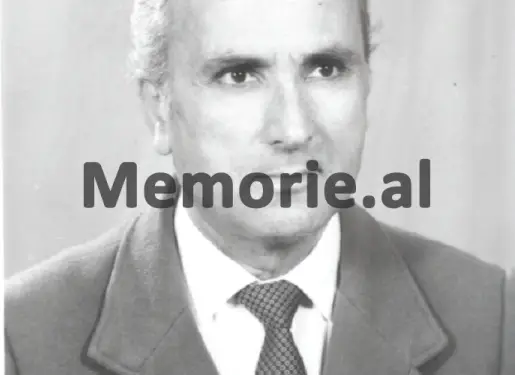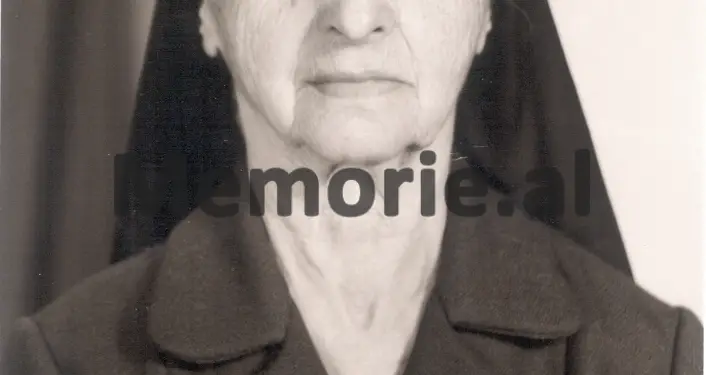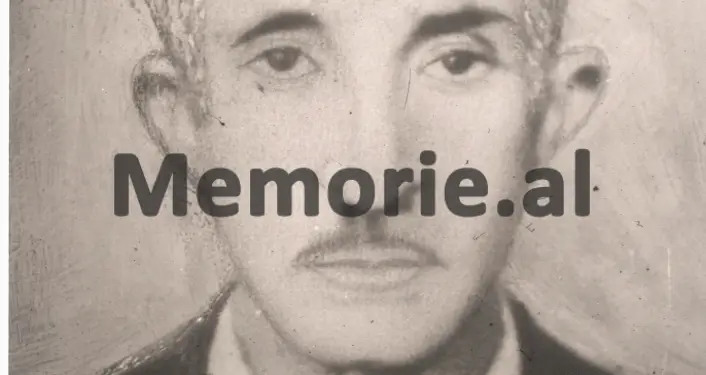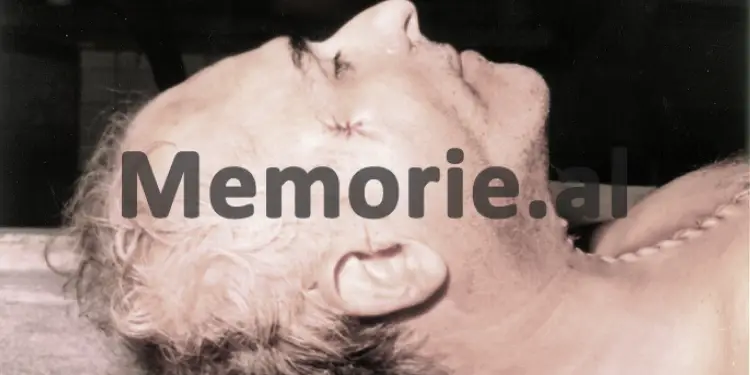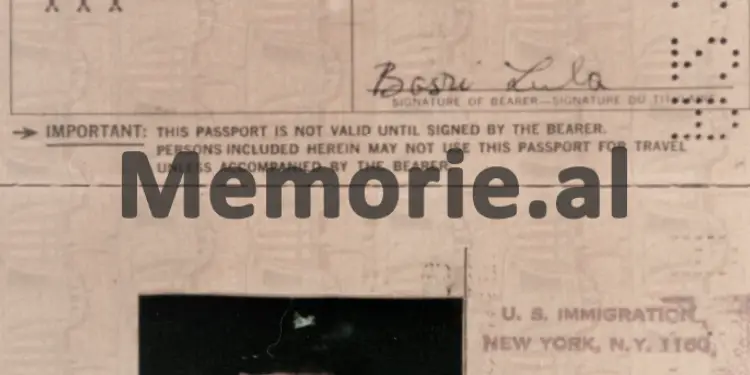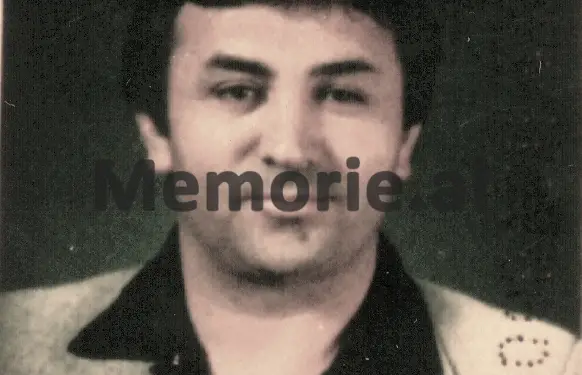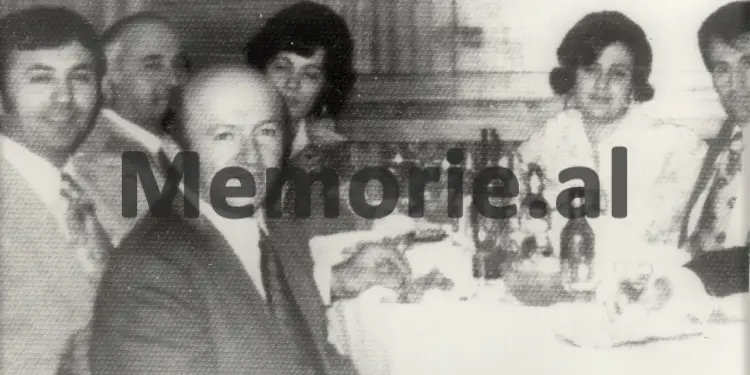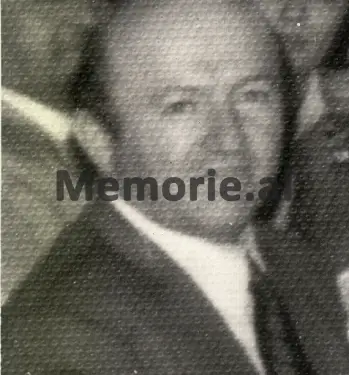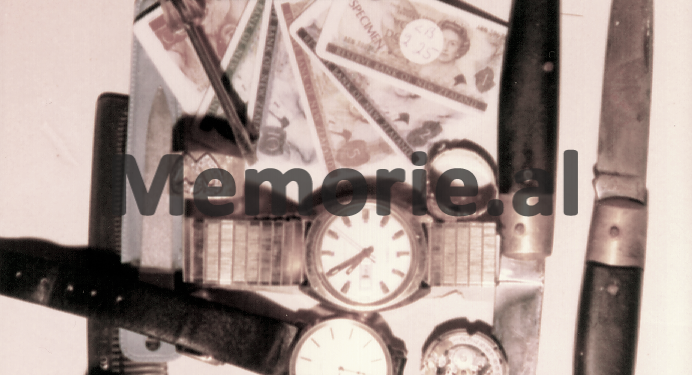Dashnor Kaloçi
The third part
Memorie.al publishes the unknown and sensational story of the so-called “Xhevdet Mustafa gang”, which included: Sabaudin Haznedari, Xhevdet Mustafa and Halit Bajrami, who at midnight on September 26, 1982, by means of a small motorboat that had set off from the Italian coast, landed on the coast of Divjaka, where after killing a police officer and a villager of the area, under the force of arms, held hostage another police officer, who would show them the way to advance inland Albanians, until they arrived in the small town of Rrogozhina, where they were discovered by the State Security men and after a gun attempt, its ‘capo’ Sabaudin Haznedari, was killed in a fire center, and also the same “Lucky” would also be Xhevdet Mustafa, who was killed after a few hours, in a house in the village of Zhamë in Lushnja, after he had previously killed the owner of the house and a police non-commissioned officer who was following him on a motorcycle. The rare testimony of Gafurr Haznedari from the city of Durrës, the brother of the ‘kapos’ of that gang, who tells for the first time the whole story of the so-called “Xhevdet Mustafa gang”, which according to the version of Enver Hoxha, was sent by UDB in collaboration with Leka Zogu, in order to assassinate the first secretary of the Central Committee of the ALP. ” and the well-known playwright, Sulejman Pitarka, would dedicate the drama “The Fisherman Family”, as well as all the State Security combinations, from their escape until the event of September 26, 1982, where Sabaudini and Xhevdet remained killed, in an effort with the forces of the Ministry of Internal Affairs, while Halit Bajrami, after being held for some time in the “Investigator” and the Hotel “Tirana”, was escorted by the Albanian Intelligence to New Zealand, where he lived peacefully even after years ’90s, refusing to trespass more in Albania!
Full 39 years ago, on the morning of Sunday, September 26, 1982, an unusual and very sensational event took place in a small town in Central Albania. He broke the silence and the stifling monotony that prevailed for years in the communist Albania of that time, causing great confusion and panic even in the ranks of the high hierarchy of the communist leadership led by Enver Hoxha. That same afternoon, the news of that event, which had spread with an unusual speed almost all over the country, was narrated in various forms. It was also announced by the Albanian Radio-Television, through an official announcement given through an official communiqué of the Ministry of Internal Affairs, which was broadcast on the news program at 20.00. That official communiqué, among other things, announced that: ‘an armed gang financed and trained by the secret services of some neighboring countries, in cooperation with the enemies of the Albanian people, had landed several kilometers. in the depths of the Albanian territory on the coast of Divjaka, where it was completely destroyed by the forces of the Ministry of Interior ‘.
Nearly two months later, still without echoing the echo of that event, during a meeting that the leader of communist Albania, Enver Hoxha, held with the voters of his constituency in Tirana, among other things, he spoke about the “gang” that had already become known, all over Albania, as the “Xhevdet Mustafa Gang”. In this regard, he said: “The armed gang of the criminal Xhevdet Mustafa, which was prepared and financed by Leka Zogu in cooperation with the Yugoslav UDB and the foreign secret services of some neighboring countries, was annihilated and completely eliminated inside six hours from their landing, still without seeing the Albanian sun well “.
This sensational event, which at that time shook the whole of Albania and opened a great panic for several months in a row, putting on high alert all the units of the Armed Forces and volunteer detachments, was spoken and written only after the ’90s, with the collapse of the communist regime, but again, the whole event of September 26, 1982, in which Sabaudin Haznedari and Xhevdet Mustafa were killed, as well as the so-called “Xhevdet Mustafa gang”, although four decades have passed since then, continues to remain shrouded in mystery, bearing upon itself a series of question marks!
In this context, with the aim of trying to shed some light on that distant event, Memorie.al returns to a cycle of articles about the so-called “Xhevdet Mustafa gang”, publishing new facts and events previously unknown, which come through the interview with Gafurr Haznedari from the city of Durrës, who is the brother of Sabaudin Haznedari, the leader of the “commando group”, who, together with Xhevdet Mustafa and Halit Bajrami, landed on the coast of Divjaka in the distant midnight of 26- September 1982, where according to the official Tirana version articulated by Enver Hoxha himself in his speech before his constituency voters in Tirana, “he was sent by the UDB in collaboration with Leka Zogu, in order to kill the secretary the first of the Central Committee of the ALP ”.
After the interview with Mr. Gafurr Haznedari that will be published in six consecutive issues (starting today), Memorie.al will continue again with other articles, testimonies and interviews, from actors of that event, relatives of their families, as well as witnesses which, by chance, connected them, or led them to the place where 39 years ago the ‘armed commando group’, otherwise known as the “Xhevdet Mustafa gang” landed, an event which even today, after four decades, continues to remain covered with mystery.
Rare testimony of Gafurr Haznedari, brother of the “gang leader” Xhevdet Mustafa”
Continued from the previous issue
Mr. Gafur, can you tell us any of the possible versions regarding Sabauddin’s escape?
One of the versions that I personally think is even closer to the truth, is this: During the time that Sabudini met with Halit Bajrami, as a childhood and war friend he had, he expressed his dissatisfaction with the position that the Party was holding to him and asked his opinion, for a possible escape. After the first meeting, as a man of the State Security, Haliti reported him to his superiors, who told him to support his thoughts and to run away together. The security people were not at all interested in Sabauddin’s arrest and sentencing, but they were more interested in him escaping and when he came out, through Haliti, they had him under control, to see and discover all possible anti-communist figures. With whom Sabaudini could meet and have connections. This they did, hoping that as a former communist, Sabaudini could serve you again. So, Sabauddin’s escape was indirectly instigated by the people of the State Security for their own purposes.
After fleeing Albania, where did Sabaudini and Halit Bajrami settle?
After crossing the border and fleeing Albania, Sabudini and Halit Bajrami were captured by Greek border forces and sent to a refugee camp, somewhere near that border area?
How long were they both held in that camp and where where he?
In that refugee camp where I cannot say exactly where he was, they were not kept long because they asked and were allowed to leave the camp and go to Istanbul, to a cousin of ours who was given the guarantee to get them out of camp.
What was your cousin’s name and under what circumstances was he there?
Our cousin was named Halit Krestiçiler and was the son of our aunt, my father’s sister, Mahmud. Our aunt lived in Istanbul for years, after she had married a Turk there, since the time our family had moved from Prilep to Manastir.
How long did Sabaudini stay with Halit Bajrami in Istanbul and where did they go next?
Sabaudini and Haliti did not stay long at our aunt’s son’s house in Istanbul, because shortly after they went there, they started quarrels and debates between them. This came after Haliti insisted on taking Sabudin with him to New Zealand.
Why did Haliti ask to go to New Zealand?
Halit Bajrami, wanted to go to New Zealand, because that was his mission, which was assigned to him by the State Security. At that time, but also later, New Zealand served as a safe ‘nest’ or ‘nursery’ for Albanian Intelligence agents.
From what sources do you know and how do you prove this?
I know this very well and I am arguing with concrete facts. The first: is the fact that Halit Bajrami, settled in New Zealand and lived there and continued to live and many years after the fall of the communist regime, if I am not mistaken about 20 years. Likewise, in that distant country of Asia, many other agents of the Albanian State Security have gone and lived, who after the ’90s, returned and came to Albania.
After the debates that Sabaudini had with Halit Bajrami, in Istanbul where did they go?
After Sabaudini refused to go with Halit to New Zealand, he persuaded him not to leave Albania too much, and they both fled Istanbul and went to Italy.
Why did Sabaudini not want to leave Albania too much and where did they settle in Italy?
Sabaudini did not want to leave Albania too much and at the same time, not to turn his attention away from it, because he hoped to return again one day to his family. He was thinking of a possible overthrow of Enver Hoxha’s communist regime. He had said this to an Albanian from the village of Gallatë in Laç i Kurbinit in the Greek camp. This man I will talk about below, had fled Albania and was repatriated again and this, he told me when he came to our house.
Where did Sabaudini and Haliti settle when they went to Italy?
After Sabaudini refused to go with Haliti to New Zealand, Haliti also changed his mind and went to Italy with Sabaudini. When they arrived in Italy, they both separated. Halit Bajrami, went to Sicily, where he had his sister, who had settled there, since the time of the War, when she was married to an Italian officer who had been in Albania. During the war, for propaganda reasons, the Duce had issued a law for those Italian officers who would marry Albanian girls, to return them to Italy. So at that time many Italian officers, to escape the war, married Albanian girls and one of them was Halit Bajrami’s sister. While Haliti settled in his brother-in-law’s house, Sabaudini went and settled, in the city of Foggia.
How long did they stay in Italy?
Haliti did not stay long in Italy because after nine months, his brother-in-law kicked him out of the house because he was not working and became a burden to his family. After that, Haliti fled from Italy to New Zealand, because his bosses had sent him on a mission there, while Sabaudini finally settled in Italy.
How could you get in touch with Sabauddin, by correspondence, by mail?
About Sabauddin’s placement in Italy, we learned after some time, because he sent us a letter in the mail at home. While the connections with him through letters, from the five brothers, I kept only me, for years.
Were you sure that letter belonged to Sabauddin and not a Security tactic, and after receiving it, did you respond?
That letter was to our brother Sabudin, we did not doubt at all, because we knew his writing well. We did not reply, but we confirmed it later, because in 1962, in our house here in Durrës, a man from Italy came and was sent by Sabaudini.
Who was this person, how did he come to you and what was said about Sabauddin?
In 1962, a woman came to our house and knocked on our door, telling us that she had a message to give us. We put him inside and she told us that he was coming from Italy and had orders from Sabaudini, to meet with all the members of the family and not to return to Italy, without seeing his son, Skënder. She was an Albanian originally from Korça and had lived in Italy since 1942, when she married an Italian officer who later died. She told us that she had known Sabaudini by chance and that he was the only Albanian she had known in Italy. According to her, during the conversations with Sabudini, she had told him that she was doing the paperwork, to come to visit her people in Korça. Sabaudini had helped her, finding lawyers, to complete the documents they were looking for at the Albanian embassy in Italy and everything she needed. In exchange for the help that Sabaudini had given her, he had asked her to: come to our house, to meet us and give us his greetings, as the main message, to see his little son, Skënder, who he was then 12 years old. When she came home, Skënderi was hospitalized, but she insisted that he would not leave without seeing her. So I was forced to take a taxi and I went and got it to the hospital and brought it home. That day, as soon as she saw her son, she left home and left for Korça, to her people “.
Did you meet with Sabauddin’s envoy again?
The day after her departure for Korça, I decided to go and meet her, and talk to her alone, because in our house, I could not ask her about many things in the presence of other brothers. Not that I did not believe that he had been sent by Sabauddin, but I wanted to learn something more about my brother. Without saying anything to the family, after two days I left for Korça and she was surprised when she met me on one of the main streets of the city. After giving him some verbal messages about Sabaudini, I asked him that when he returned to Italy, he would tell him; just make me a news-call, to talk on the phone. With this, I wanted to make sure that if I received the call, it was true that Sabauddin had sent him to our house.
Did you hear the call from Sabaudini?
A few days later, I received a call from Italy from Sabaudini, to the address where he had sent us the first letter. She delighted me immensely, but I did not speak to speak, because no one connected me. When I went to the Post-Telegraph, I was told to wait, because the line was not working and when we left, we were told that he had left later, but we had left. It is understood that these were games that the employees of the Post-Telegraph made according to the orders they had from the Security people.
But after that, could you make connections with Sabauddin?
After we could not communicate by phone with Sabudin, according to the news of the call he had made to us, I decided and wrote him the first letter according to the address that had come to us.
What did you write in that letter and did you get a response from it?
Knowing that foreign correspondence was under the control of the State Security, I used a method so that the letters would not be blocked by them. So, at the beginning of the first letter I sent to him, I wrote to him very harshly, saying: “Sabaudin, return to Albania, because you have nothing to do in that country. I wonder how the Italians still keep it, when you “You have waited and fought against them. Have faith that when you return, the Party and Comrade Enver will judge righteously and forgive the mistake made.” After that, I wrote to the people at home, telling him that they were very well and could not wait for his return to Albania. But Sabaudini knew that those words, I did not have from the heart, because I had conveyed my opinion orally through that woman from Korça, who he sent us from Italy. This method that I used in the letters I sent to him was successful, because after the first letter, he immediately responded to me.
That is, you had created trust in the ladies from Korça ?!
Not that I had faith but it was love for my brother and the second, that it kept me hoping that even if she reported me to the State Security, I would deny her and she had no witnesses, because as I said above I met her in one of the streets of the city of Korça, without first notifying him.
How many letters did you exchange with Sabauddin and did other brothers besides you write to him?
I received from Sabaudini about 20 letters, which I kept until late, in September 1982, (when the incident in Rrogozhina took place when Sabaudini was killed), when my house was seized and all of them were taken from me. As for the other brothers, they did not have any correspondence with Sabaudini, because both Emini and Naimi were members of the Party and with functions as directors of enterprises. It is understood that they could not and did not want to risk themselves, having correspondence with Sabaudini.
What about his father, Mahmud, what was his attitude towards him?
Mahmoud, while he was alive, had a nail in the heart of Sabauddin’s absence, because he had him in his family and in the War. In 1958, he died grieving with Sabauddin’s name in his mouth.
Somewhere during the conversation, you said that Sabaudini became a sworn anti-communist and this was reinforced by a man who came from Greece?
Yes it is true and it is not only that person, but I have other facts as well. In the mid-1960s, our brother, Naimi, who was the supply manager at the Shipyard at the time, brought us home a man who had spent the night outside and could not find a hotel in Durrës. If I am not mistaken, his surname was Lika and he was from the village of Gallata in Kurbin. He had committed a murder due to blood feud problems and had fled Albania, going to Greece. There they kept him in that camp, where Sabaudini and Halit Bajrami were, then he returned to Albania, after an amnesty granted by the People’s Assembly. All this, he told us that night in our house, telling us that Sabaudini was a sworn anti-communist and that the whole camp knew him as such a man.
What other source, regarding Sabauddin’s anti-communist stance and beliefs, did kish?
Regarding Sabauddin’s beliefs and anti-communist attitude, Mr. Avdul Banushi, as they both, dropped bombs on the Albanian embassy in Rome.
Did you know about this event, ie the bombing of the Albanian embassies in Rome and Paris before Mr. Banushi’s interview?
Yes I had that thing I personally learned two or three months later, when…! /Memorie.al
The next issue follows




